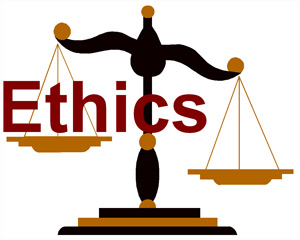Ethics For The Massage and
Bodywork Therapist: 
Course Descriptions: These classes are intended to provide ethics continuing
education that will meet the
Ethics: Focus on Transference/Counter-transference (4 CE)
Upon completion of the class, the participant will:
• Identify state and national definitions, professional standards, rules, and guidelines relating to transference and counter-transference.
• Clearly describe the massage therapist’s scope of practice in regard to transference and counter-transference.
• Describe the dynamics of transference and counter-transference in regard to the following: Expectation; Empathy; Metabeliefs; Emotional Suppression and Emotional Repression; Abreactions and altered states of consciousness; Energetics.
• Identify transference and counter-transference when it is happening
• Choose appropriate strategies for dealing with: Transference; Countertransference; Emotional suppression; Emotional repression; Abreaction.
Dynamic Energy Balancing® : Ethical Considerations for Energy Workers (3 CE)
Prerequisite: The ability to give an energy work session and at least one prior class in energy work, or permission of the the Instructor.
Ethical Considerations for Energy Workers will include an overview of special conditions applying to energy workers, and the development of new levels of integrity, respect, kindness, and presence. Teh class begins with a one hour round table ethics discussion, focusing on story-telling- sharing of ethical issues experienced by members of the group and the instructor and how they were or were not resolved, impact on client, etc. This time is followed by a series of experiential exercise in which we explore and report on boundaries and intention/lack of intention. The final hour we will formulate a Code of Ethics for Energy Workers based on the group's experiences and shared convictions.
Learning Outcome: Through an exploration of ethical considerations for energy workers, redefine ethical boundaries, thus gaining clarity, confidence, and enhanced professionalism, in your energetic interactions with clients.
Ethics: Rules and Standards Review (2 or 3 CE)
This is an interesting review of the legalities of practicing massage or bodywork in North Carolina presented by a former State Board member. You will also gain a better understanding of the NC Board and its functions. The 3-hour version includes a review of massage organizations on the local and federal levels, and how these organizations are affecting us at the state level. Some classes are held following NC Board of Massage and Bodywork Therapy Board meetings, and proceedings will be discussed as part of the class.
Learning Objectives:
At the conclusion of the class, participants will be able to:
- Demonstrate an understanding of NC rules and how they are applied in practice.
- Describe the function of the NC State Board for Massaage and Bodywork Therapists
- Describe the differences between licencing and certification, national standards, massage organizations and how these elements of our profession interface
The Ethics of Money (4 CE)
In this class we will explore the ethics of money, as it relates to your massage and bodywork practice. The class will include a combination of relevant information, practical tips, a forum to air your problems and get suggestions for solutions from colleagues, and some personal values clarification work. Some topics we will look at from an Ethics point of view are:
- A review of NC rules and National standards that relate to your finances
- Your financial policies in your practice- what supports the therapeutic relationship and what doesn’t.
- Dealing with receiving money from your clients ( Exploring personal boundaries around such issues as bounced checks, tips-how much is too much, doing work for free or for a discount, etc.)
- A deeper look at your beliefs about prosperity and financial success and the personal values you hold around these beliefs.
Ethics: Giving and Receiving Feedback from Clients and Colleagues (3 CE)
Feedback is the precious gift we can use to make our massage better and better. We need it to build our practice and become successful. We will discuss the value of feedback, as well as how to obtain honest feedback, from our clients and colleagues. We will practice giving and receiving honest feedback.
Learning Objectives:
At the conclusion of the class, participants will be able to:
- Define feedback, criticism, and correction, and describe how feedback, criticism and correction interface with the massage therapist’s professional role with both clients and colleagues.
- Begin to develop strategies that will help the massage therapist gracefully obtain and skillfully use feedback from clients and colleagues to enhance their professional practice.
Ethics: Being on the Board (3 CE)
Overstepping boundaries is the number one complaint filed against LMBTs. Role play thorny scenarios of fictional Board hearings for LMBTs who are facing the complaint/disciplinary process. Play-act the therapist, Board Member, or the Client who has complained. Learn dynamically!
Learning Objectives:
At the conclusion of this class, the student will be able to describe the following:
- disciplinary responsibility of the NC Board of Massage & Bodywork Therapy
- complaint process
- hearing procedure
- process by which the Board makes a hearing decision
Integrity- An Exploration of Telling the Truth (3 CE)
Truth is not always easy, nor is it always obvious. And in our practice of massage and bodywork, we often need to reflect in order to discover exactly what the truth of a situation is. Our professionalism requires that we embrace integrity with dignity, and that we know how to be honest with our clients without being hurtful. This class is designed to help you explore the meaning of integrity, to see more clearly how much integrity you already have, and to build on that core, developing and enhancing integrity in areas that might not be as strong as they could be.
Learning Outcomes:
Clarify what “integrity” means to you
- Explain the energetic source of integrity and the energetic consequences of diminished integrity.
- Describe the relationship between professionalism and integrity
- Name the 3 aspects of your practice that are most strongly intertwined with your personal integrity.
- Begin to develop an ability to be tactful, professional and honest in client and employer communications.
- Address issues of staying silent and speaking up.
Ethics: Personal Boundaries and the Therapeutic Relationship (6 CE)
Having attended the Ethics class, the LMBT will:
- Identify the six NCBTMB standards of practice
- Identify, know the relationship between, and know how to stay current with NC law (Practice Act), BMBT rules, and BMBT guidelines.
- Define Ethics, scope of practice, code of ethics, informed consent, dual relationships, boundaries and confidentiality.
- Define personal boundaries and clearly state the relationship of those boundaries to the laws and standards.
The Ethical Dilemma (6 CE)
Having attended the Ethics class, the LMBT will:
- Identify the six NCBTMB standards of practice
- Identify, know the relationship between, and know how to stay current with NC law (Practice Act), BMBT rules, and BMBT guidelines.
- Define Ethics, scope of practice, code of ethics, informed consent, dual relationships, boundaries and confidentiality.
- Define an Ethical dilemma and utilize his or her knowledge to resolve the dilemma.
Ethics: A Focus On Sexual Issues (3 CE)
Having attended the Ethics class, the LMBT will:
- Become re- acquainted with national and state ethical standards in regard to sexual issues.
- Experience greater confidence and clarity in his/ her responses when faced with ethical decisions related to his/her practice.
 Dynamic Equilibrium
Dynamic Equilibrium

